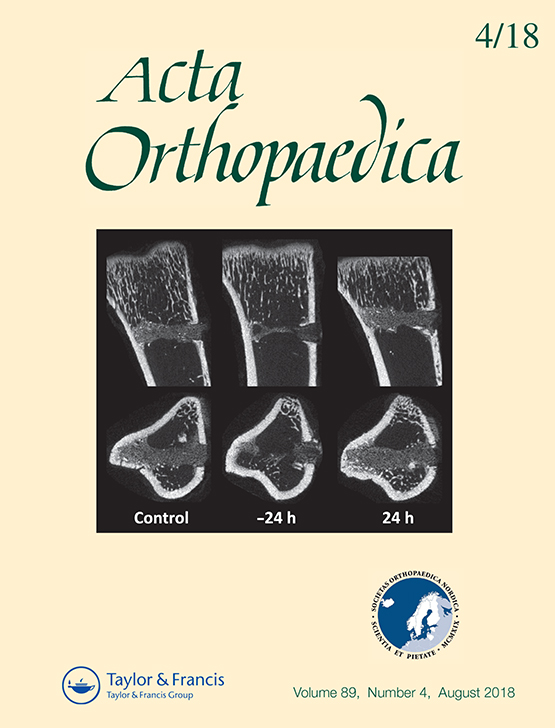Meta-analysis of individual registry results enhances international registry collaboration
DOI:
https://doi.org/10.1080/17453674.2018.1454383Abstract
Background and purpose — Although common in medical research, meta-analysis has not been widely adopted in registry collaborations. A meta-analytic approach in which each registry conducts a standardized analysis on its own data followed by a meta-analysis to calculate a weighted average of the estimates allows collaboration without sharing patient-level data. The value of meta-analysis as an alternative to individual patient data analysis is illustrated in this study by comparing the risk of revision of porous tantalum cups versus other uncemented cups in primary total hip arthroplasties from Sweden, Australia, and a US registry (2003–2015). Patients and methods — For both individual patient data analysis and meta-analysis approaches a Cox proportional hazard model was fit for time to revision, comparing porous tantalum (n = 23,201) with other uncemented cups (n = 128,321). Covariates included age, sex, diagnosis, head size, and stem fixation. In the meta-analysis approach, treatment effect size (i.e., Cox model hazard ratio) was calculated within each registry and a weighted average for the individual registries’ estimates was calculated. Results — Patient-level data analysis and meta-analytic approaches yielded the same results with the porous tantalum cups having a higher risk of revision than other uncemented cups (HR (95% CI) 1.6 (1.4–1.7) and HR (95% CI) 1.5 (1.4–1.7), respectively). Adding the US cohort to the meta-analysis led to greater generalizability, increased precision of the treatment effect, and similar findings (HR (95% CI) 1.6 (1.4–1.7)) with increased risk of porous tantalum cups. Interpretation — The meta-analytic technique is a viable option to address privacy, security, and data ownership concerns allowing more expansive registry collaboration, greater generalizability, and increased precision of treatment effects.Downloads
Download data is not yet available.
Downloads
Published
2018-07-04
How to Cite
Paxton, E. W., Mohaddes, M., Laaksonen, I., Lorimer, M., Graves, S. E., Malchau, H., Namba, R. S., Kärrholm, J., Rolfson, O., & Cafri, G. (2018). Meta-analysis of individual registry results enhances international registry collaboration. Acta Orthopaedica, 89(4), 369–373. https://doi.org/10.1080/17453674.2018.1454383
Issue
Section
Articles
License
Copyright (c) 2018 Elizabeth W Paxton, Maziar Mohaddes, Inari Laaksonen, Michelle Lorimer, Stephen E Graves, Henrik Malchau, Robert S Namba, John Kärrholm, Ola Rolfson, Guy Cafri

This work is licensed under a Creative Commons Attribution 4.0 International License.
Acta Orthopaedica (Scandinavica) content is available freely online as from volume 1, 1930. The journal owner owns the copyright for all material published until volume 80, 2009. As of June 2009, the journal has however been published fully Open Access, meaning the authors retain copyright to their work. As of June 2009, articles have been published under CC-BY-NC or CC-BY licenses, unless otherwise specified.







